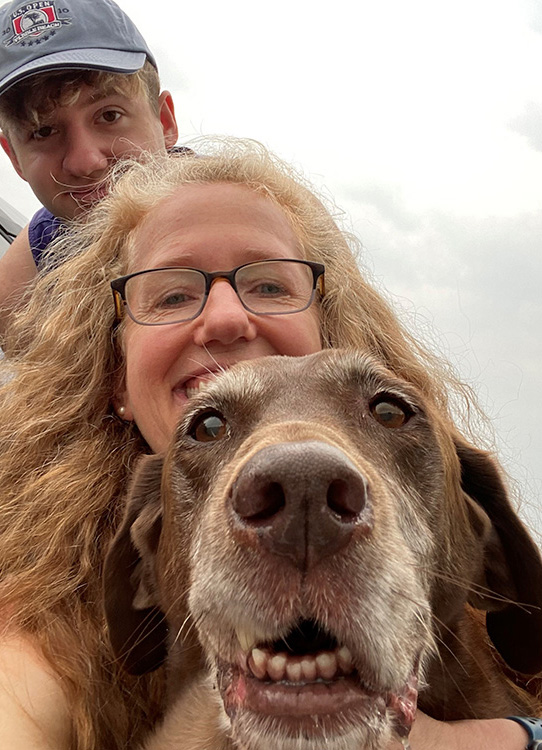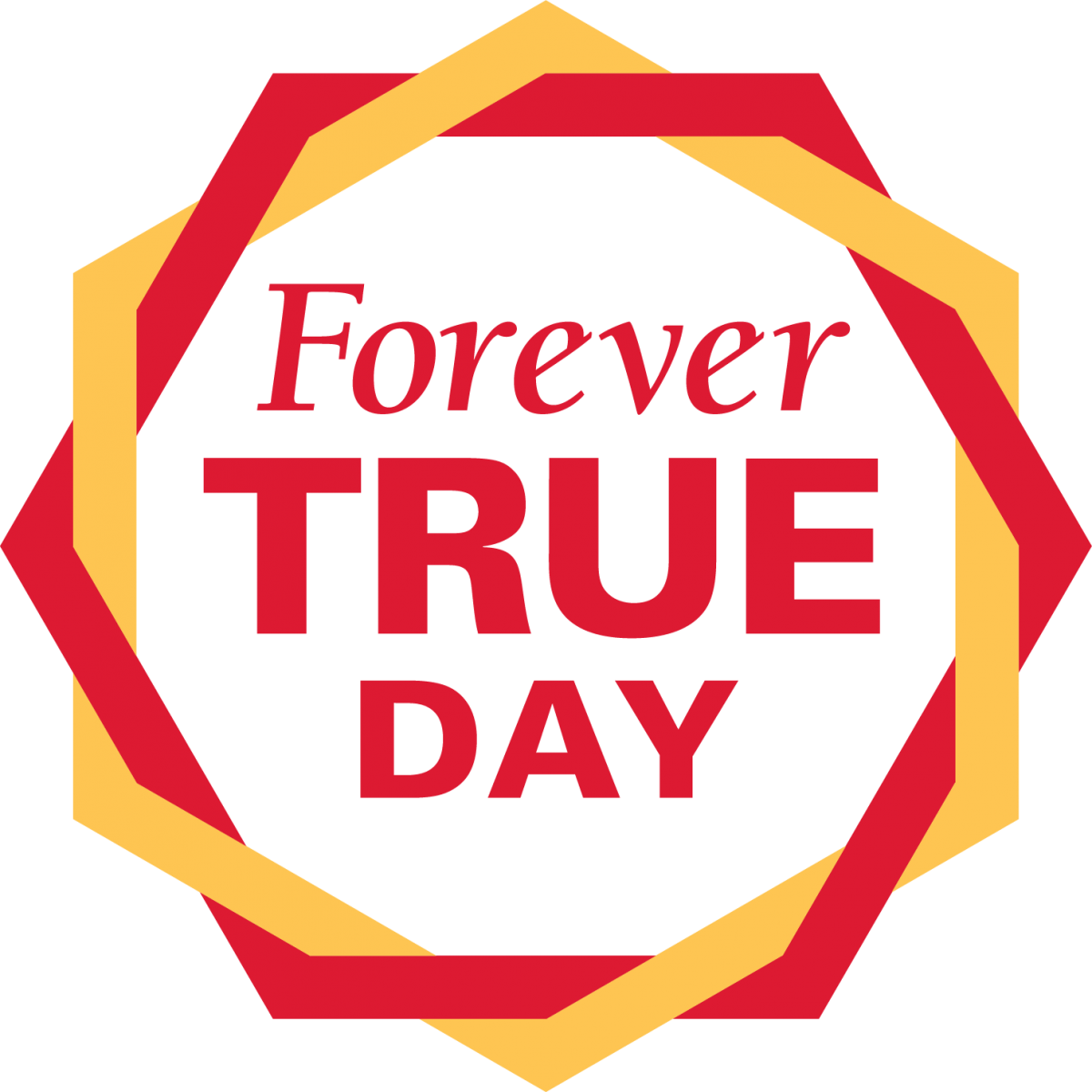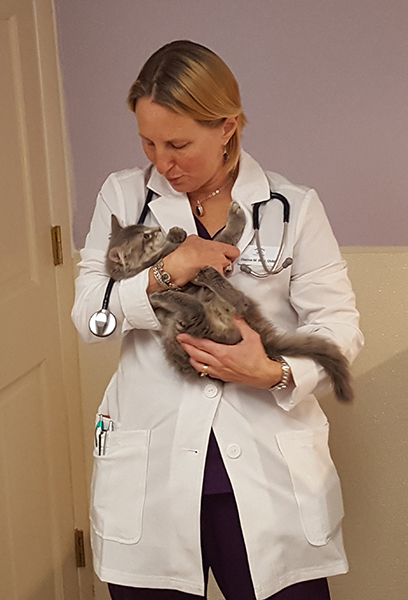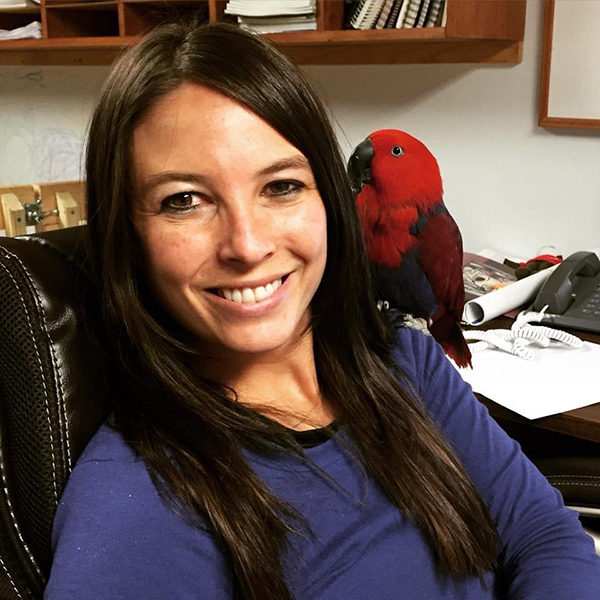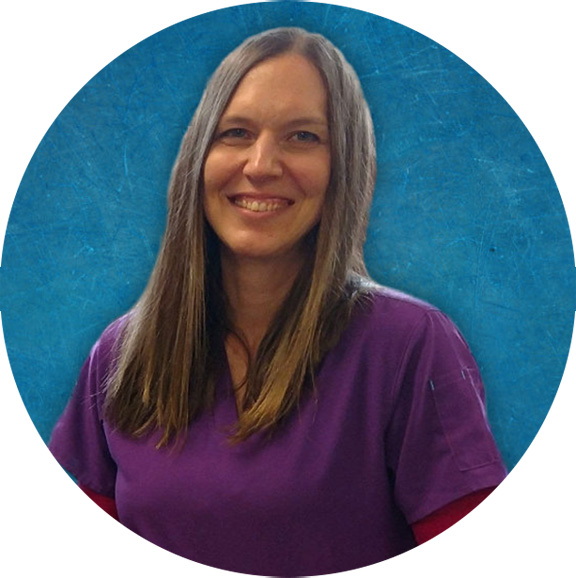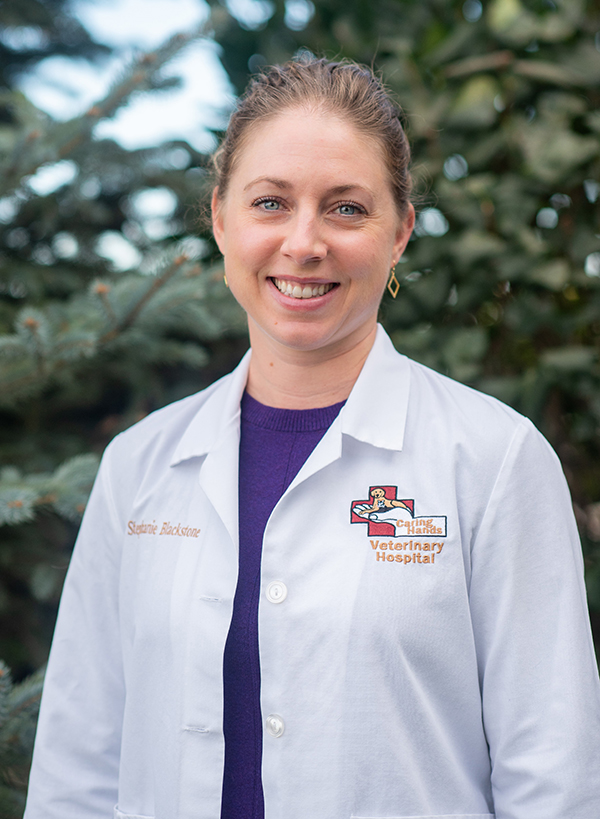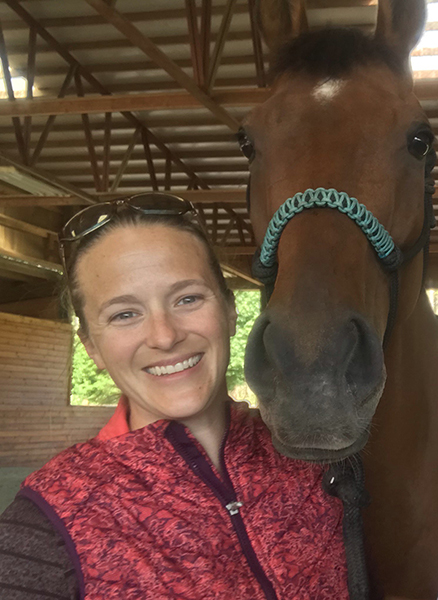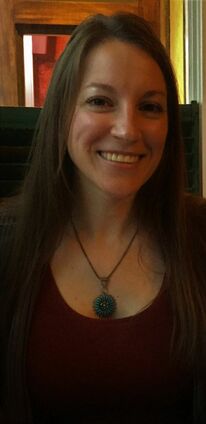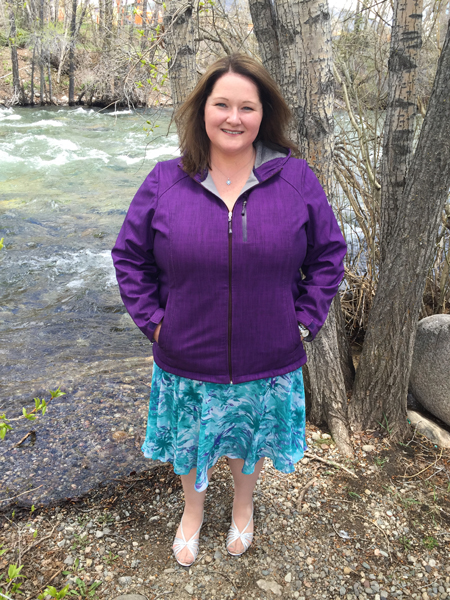Name the animal and Dr. Lesha (Eggers) Dawson has probably not only treated and cared for it, but has welcomed it into her home.
Even her sixth grade photo featured a baby opossum that had nearly drowned in a storm.
“I brought the baby opossum home to my parents, begging them to help me help her,” Dawson said. “My parents graciously tolerated most of the creatures I brought home, and always knew I would end up caring for them as I have for all of my life.”
Today the tolerant person is Dawson’s husband Matt.
“One of the first things I told my husband was if you marry me, it’s not just me,” Dawson said. “My menagerie is part of who I am and where I go, they go.”
A good example is when Dawson moved from a mixed animal practice in Kansas after graduating from Iowa State to Texas and the Bastrop Veterinary Hospital near Austin.
Dawson describes the trip from Kansas to Texas like this.
“I drove down with a squirrel asleep on my shoulders, one cat on my lap, one cat beside me, a yorkie on the seat snuggled up with the cat, and a brilliant red parrot on my other shoulder,” she said. “You should have seen the toll booth lady when I rolled down the window!”
We should note that Dawson was traveling legally with the squirrel – it was one of her wildlife rehab patients. She served as a wildlife rehabilitation substitute in Kansas for years with experience working with and raising baby raccoons, foxes, beavers and many other wildlife creatures.
Over her veterinary career, Dawson has also cared for giraffes, camels along with the cows, birds, dogs and cats that come into her practice.
“All of these creatures brought and still bring such joy to my heart not to mention the entertainment value,” she said.
If anything since she moved to Texas, Dawson’s menagerie has grown. Her yorkie, Tuffy, who was with her throughout vet school, is now over 17 years old. The parrot came from a client who moved and couldn’t take her with them.
“She was my patient and we had a great bond. Bunnies I have had all my life, so I guess I just keep accumulating them because I love them,” Dawson said.
The latest addition is a calf named Bradley who had a severe infection and an open fracture on his hind leg.
“His owners just were unable to care for him in the way that he needed to heal, and he had a terrible prognosis period. They were so very grateful that I was willing to just try and I was so grateful for the opportunity,” she said.
Bradley is now one of Dawson’s three “dog-cows,” along with Vinny who was attacked by a pack of dogs as a young calf, and Herman, a Brahman steer whom Dawson flushed joints on repeatedly.
“My rule is that everyone must live in harmony and they all abide by that, so it works, right down to the parrot and the cats sitting side by side,” Dawson said. “It may look like chaos, but it works and I love every second.”
The vast majority of her animals are what Dawson lovingly calls “clinic rejects.” The owners are unable to either physically or financially care for the animals and they ask if there is anyone at Bastrop Veterinary Hospital who would like a project.
As an owner of the clinic, Dawson says that staff member “usually ends up being me.”
Bastrop Veterinary Hospital is a seven doctor clinic with patients including dogs, cats, exotics, livestock and horses.
“Just yesterday I saw a macaw, cattle, dogs, cats and consulted on several other things,” she said. “It’s never boring with our variety around here.
“We focus on letting our doctors grow and practice the way that they are most comfortable with, and we provide a support network that ensures that even new graduates can gain confidence and have mentorship and the opportunity to consult with another doctor at any given time.”
